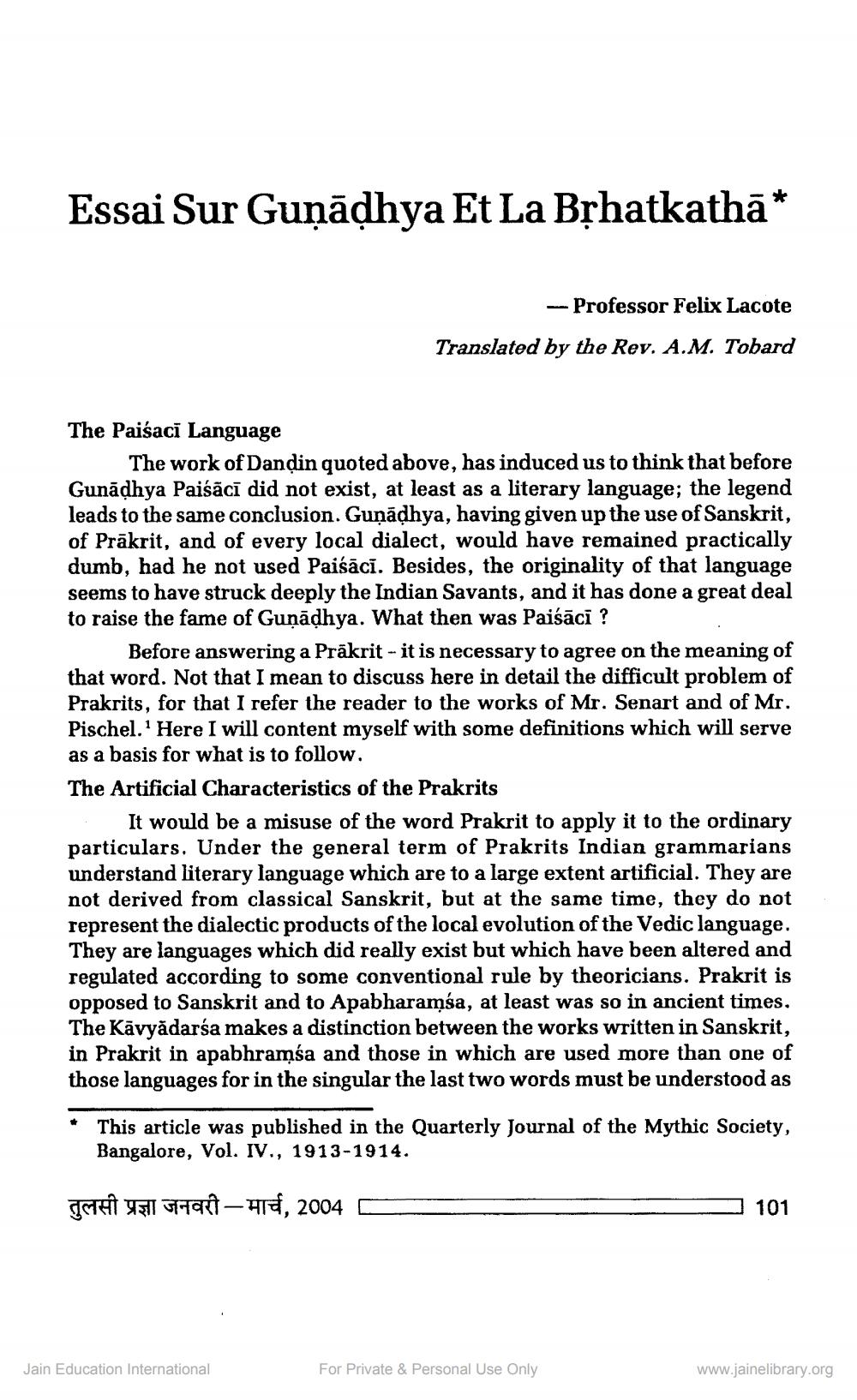________________
Essai Sur Guṇādhya Et La Bṛhatkathā*
The Paiśacī Language
The work of Dandin quoted above, has induced us to think that before Gunadhya Paiśācī did not exist, at least as a literary language; the legend leads to the same conclusion. Gunadhya, having given up the use of Sanskrit, of Prakrit, and of every local dialect, would have remained practically dumb, had he not used Paiśācī. Besides, the originality of that language seems to have struck deeply the Indian Savants, and it has done a great deal to raise the fame of Gunadhya. What then was Paiśāci ?
- Professor Felix Lacote
Translated by the Rev. A.M. Tobard
Before answering a Prakrit - it is necessary to agree on the meaning of that word. Not that I mean to discuss here in detail the difficult problem of Prakrits, for that I refer the reader to the works of Mr. Senart and of Mr. Pischel.1 Here I will content myself with some definitions which will serve as a basis for what is to follow.
The Artificial Characteristics of the Prakrits
It would be a misuse of the word Prakrit to apply it to the ordinary particulars. Under the general term of Prakrits Indian grammarians understand literary language which are to a large extent artificial. They are not derived from classical Sanskrit, but at the same time, they do not represent the dialectic products of the local evolution of the Vedic language. They are languages which did really exist but which have been altered and regulated according to some conventional rule by theoricians. Prakrit is opposed to Sanskrit and to Apabharamsa, at least was so in ancient times. The Kavyadarśa makes a distinction between the works written in Sanskrit, in Prakrit in apabhramsa and those in which are used more than one of those languages for in the singular the last two words must be understood as
.
This article was published in the Quarterly Journal of the Mythic Society, Bangalore, Vol. IV., 1913-1914.
तुलसी प्रज्ञा जनवरी-मार्च, 2004
Jain Education International
For Private & Personal Use Only
101
www.jainelibrary.org




